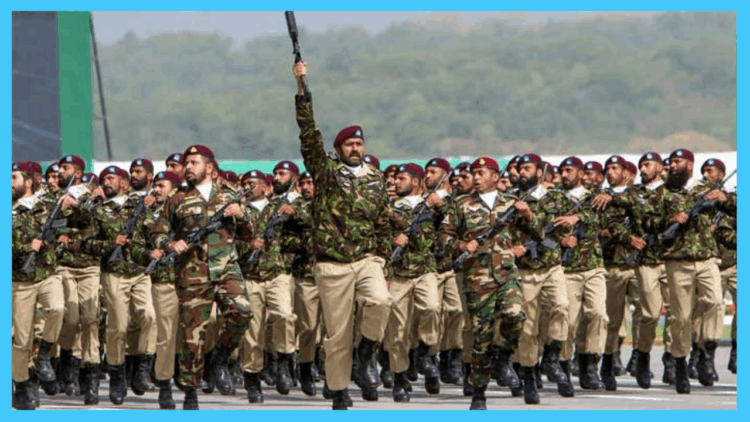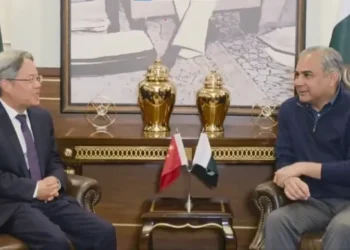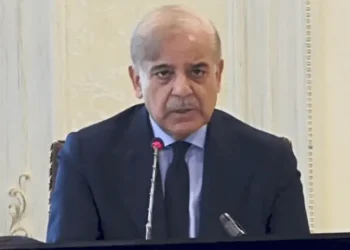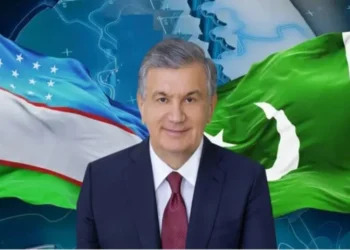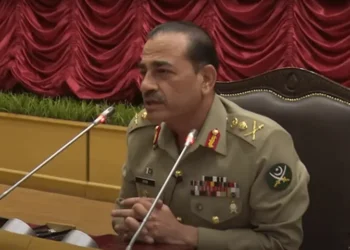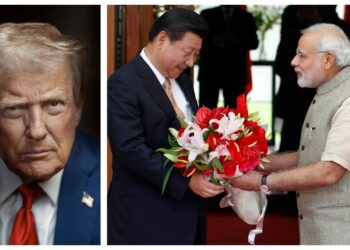Web Desk; Pakistan today commemorated the 60th Defence and Martyrs’ Day with solemn ceremonies across the country, paying tribute to the bravery and sacrifices of its armed forces, martyrs, ghazis, and citizens who stood firm in the face of adversity. The day carried an added sense of reverence this year, coinciding with Eid Milad-un-Nabi (PBUH), amplifying the themes of sacrifice, unity, and devotion to higher causes.
The observance began with a 31-gun salute in the federal capital Islamabad, while provincial capitals marked the occasion with 21-gun salutes. Special prayers were offered at mosques nationwide for the progress of Pakistan, the well-being of its people, and the liberation of Indian Illegally Occupied Jammu and Kashmir.
Military leaders, including Chief of Army Staff Field Marshal Syed Asim Munir, Chairman Joint Chiefs of Staff Committee (CJCSC) General Sahir Shamshad Mirza, Chief of Naval Staff Admiral Naveed Ashraf, and Chief of Air Staff Air Chief Marshal Zaheer Ahmed Baber Sidhu, led tributes to the nation’s heroes. Their statements recalled not only the historic defence of the homeland during the 1965 war but also the sacrifices made in recent conflicts, counterterrorism operations, and natural disasters.
The 1965 War continues to serve as the cornerstone of Defence Day. Radio Pakistan, in a special broadcast, reminded listeners that on September 6, 1965, Indian forces launched a surprise attack by crossing the international border at night. Against overwhelming odds, Pakistan’s armed forces, backed by the resilience of its people, stood like an “insurmountable wall” and thwarted the enemy’s designs. That episode, officials said, cemented the lesson that a united nation, rooted in faith and determination, cannot be defeated.
Ceremonies held in different cities brought the nation’s shared history to life. In Karachi, the Pakistan Air Force took over the guard duties at Quaid-i-Azam’s mausoleum in a symbolic display of honour. Contingents marched in perfect synchronization, raising the national flag while the anthem played, as citizens gathered to watch. Air Vice Marshal Shehryar Khan, attending the event, delivered an address recalling how the recent Operation Bunyanum Marsoos in May 2025 echoed the same spirit of September 1965. He emphasised that unity between the armed forces and the people remained Pakistan’s greatest strength. Any act of aggression, he warned, would be met with an overwhelming response — one that would “not be 6-0, but 60-0 with the help of God.”
Lahore too hosted a symbolic ceremony at the mausoleum of Allama Iqbal, where a changing of the guard took place. Lahore Corps Commander Lieutenant General Fayyaz Hussain Shah attended as chief guest, laying a floral wreath and offering prayers. State-run media reported that Lahore marked the day with a 21-gun salute, followed by ceremonial drills from the Pakistan Army.
The Inter-Services Public Relations (ISPR), in its statement, described Defence Day as a reaffirmation of “unflinching resolve and unshakeable spirit.” It stressed that the courage of martyrs and ghazis continues to inspire new generations, ensuring that their legacy endures. The statement underscored that Pakistan’s armed forces remain vigilant against all forms of threats, promising a decisive response to anyone seeking to disturb the nation’s peace. Importantly, the military leadership acknowledged the recent floods and emphasised that Defence Day would be observed with “utmost humility,” pledging full support for relief and rehabilitation of affected citizens.
The country’s political leadership also joined in paying tributes. Prime Minister Shehbaz Sharif, in a televised address, hailed the bravery of the armed forces during both the 1965 War and Operation Bunyanum Marsoos earlier this year. He said the professionalism of Pakistan’s Army, Navy, and Air Force demonstrated that the country possesses not only the will but also the capability to defend its sovereignty under any circumstances.
The prime minister reiterated Pakistan’s policy of peaceful coexistence and constructive engagement with the international community, but he cautioned against ignoring the persistent provocations from India and the evolving regional security environment. He stressed that Pakistan would continue modernising its defence while also standing firmly against terrorism and foreign proxies. Expressing solidarity with the people of occupied Kashmir, he reaffirmed Pakistan’s commitment to their right to self-determination, while also condemning Israeli aggression in Palestine and calling for uninterrupted humanitarian assistance to Gaza.
In a message shared on X, the prime minister stated: “We cannot be oblivious to the reality of persistent Indian provocations. Pakistan will continue to strengthen its defence capabilities, while remaining committed to peace and constructive global engagement.”
President Asif Ali Zardari, in his message, called September 6 a glorious chapter in the nation’s history. He highlighted that the sacrifices of 1965 remained a guiding light for future generations, and drew parallels between the courage of that era and the valour shown by Pakistani forces during the recent Operation Bunyanum Marsoos. He said the day embodied the country’s enduring spirit of sacrifice and resolve, urging unity in the face of present-day challenges such as extremism, injustice, and climate crises.
Interior Minister Mohsin Naqvi added that Defence Day was a reminder of how martyrs, ghazis, and citizens together had made Pakistan “invincible.” From Kasur to Lahore and Sialkot to Kashmir, he said, the Pakistan Army had responded with “unmatched courage and unwavering resolve.”
Pakistan Peoples Party Chairperson Bilawal Bhutto-Zardari also marked the occasion with a tribute on X, writing that the people of Pakistan had withstood aggression, terrorism, and calamities with resilience and dignity. He said this legacy of sacrifice continues to inspire hope and unity as the nation moves forward.
As the day closed, Pakistanis reflected not just on the triumphs of 1965, but on the broader lessons of unity, faith, and sacrifice. From the gun salutes echoing in the morning sky to the prayers in mosques and the ceremonies at national landmarks, the observances reinforced a collective pledge: that the sacrifices of martyrs will never be forgotten, and that the nation remains ready to defend its freedom, no matter the challenge.




















































